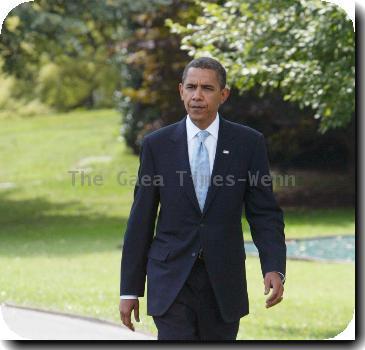Illinois House approves deal that would cap most political contributions but not all
By Jim Suhr, APFriday, October 30, 2009
Illinois House OKs caps on political donations
SPRINGFIELD, Ill. — The Illinois House on Thursday passed a Democrat-driven compromise that would establish Illinois’ first limits on campaign donations and avoid an embarrassing failure on one of the highest-profile ethics proposals to follow the Blagojevich scandal.
Republicans condemned the measure before it cleared the House 66-49. It contains what they consider a fatal loophole: Political parties and legislative leaders would face limits on their contributions during primary elections but not for general elections.
That, they insisted, could create omnipotent party bosses.
“This is not even close to changing the climate and culture of this state,” said House Minority Leader Tom Cross, R-Oswego.
Democrats rejected Republican efforts to amend the bill and remove the general-election loophole for party and legislative leaders.
Ethics groups who helped negotiate the measure with key Democrats — which led to Republican complaints about being shut out of the process — called the deal a step in a long road to reform. Holding out for strict limits on parties and legislative leaders would have endangered the entire bill, they claimed.
“We went as far as we think we could go without losing the whole thing,” CHANGE Illinois spokesman Jim Bray said.
One expert said meaningful campaign-finance reform could improve the state’s image after Gov. Rod Blagojevich’s arrest and impeachment inspired endless late-night talk show jokes about Illinois corruption. It might even lure businesses turned off by graft and mismanagement in the state.
“When businesses start making expansion and relocation decisions, many of them will look at the state and say now, ‘Will I have to pay to play? Will I be shaken down by candidates?’” said David Yepsen, director of the Paul Simon Public Policy Institute at Southern Illinois University in Carbondale.
Right now, Illinois law places no cap at all on the size of political contributions.
The measure calls for limiting candidates to taking $5,000 from individuals, $10,000 from unions, businesses and interest groups, and $50,000 from political action committees during each election cycle.
Groups like the Campaign for Political Reform and CHANGE Illinois also wanted to limit donations from political parties and the four legislative leaders. They argued that would reduce the influence of insiders such as House Speaker Michael Madigan, who decides how the Democratic Party of Illinois distributes millions of dollars.
Republican leaders agreed with the call for across-the-board limits. But Democratic leaders objected, wanting political parties and top legislators to continue being able to give unlimited amounts during the general elections.
“My view is a political party exists to support its candidates in a general election,” Madigan said
If the compromise version fails, it’s possible that lawmakers would scrap donation limits entirely. Or Democrats might advance a version that doesn’t apply at all to political parties and legislative leaders.
Sen. Don Harmon — a key negotiator for Senate Democrats — defended the idea of limiting donations from legislative leaders and political parties during the primary election but not the general election. It would discourage insiders from using funds to punish an out-of-favor lawmaker, he said, while still giving them free rein to help their party’s nominee in the fall.
Harmon also said applying limits to general elections, which are generally more expensive than primary elections, could leave an opening for special-interest groups to fill the void with their money.
The measure also requires quick, year-round disclosure when candidates accept $1,000 or more, gives the State Board of Elections new enforcement authority and sets up a task force to recommend more ways to strengthen campaign finance laws.
Illinois officials approved several reform measures earlier this year after Blagojevich was removed from office. The former governor faces corruption charges, accused, among other things, of trying to sell President Barack Obama’s old Senate seat and squeeze campaign contributions out of people. He has pleaded not guilty.
The reforms included stronger public information laws, tighter rules on government contracts and more disclosure of corruption investigations. Lawmakers also approved a campaign finance bill, but it was so widely criticized that the governor and legislative leaders agreed to start over.
Gov. Pat Quinn has ducked questions about whether he would sign a bill that doesn’t limit campaign contributions from political parties and legislative leaders.
Tags: 2009 United States General Election, Barack Obama, Campaigns, Celebrity, Celebrity Causes, Events, General Elections, Illinois, North America, Political Corruption, Political Fundraising, Political Issues, Political Organizations, Political Parties, Primary Elections, Springfield, United States

